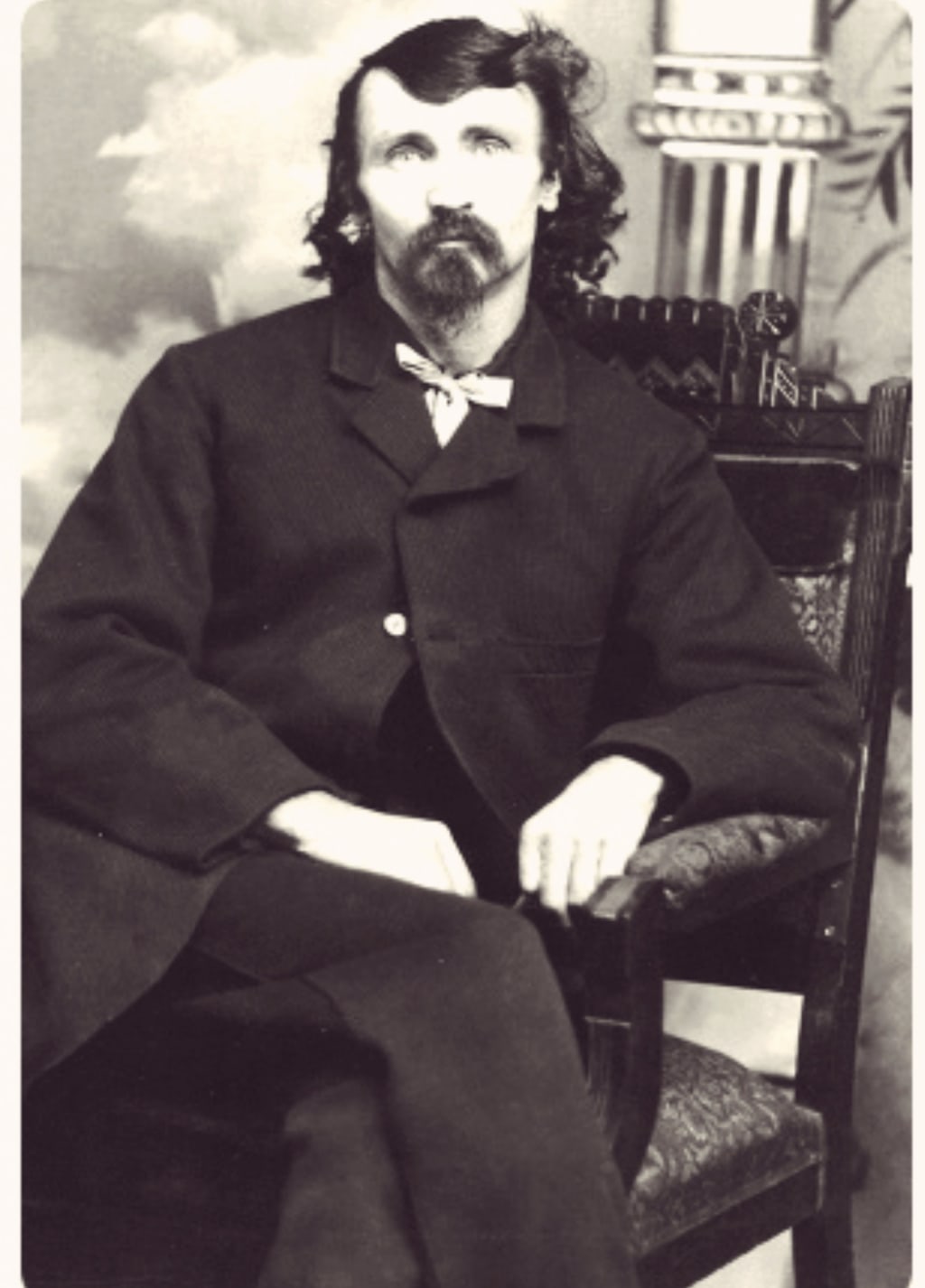Reason First: Alferd Packer’s Hunger for Crime
How can the American frontier see so much carnage?

To dine on the human flesh of one’s own kind is one of the most taboo subjects in all of history. Alfred Packer, who never received a charge, saw trial, or faced a conviction based on cannibalism is linked to the morbid practice. By his account, he and five other men started an adventure toward Gunnison, Colorado. A bitter winter storm descended upon their cavalcade. What happened next proved to be rather disturbing.
Packer found one of the men, Shannon Wilson Bell chewing on the flesh of a member of the team. After seeing Packer, he attempted to hack him to death with an axe so Packer shot and killed him. Packer’s story consisted of Bell going insane and murdering the group of travelers. Packer maintained that he killed Bell out of self-defense.
In later confessions, Packer admitted to butchering the other men and faced time in jail.
A manslaughter charge carried with it the death penalty. While the verdict did not stand, Packer served eighteen years of an original 40 year sentence.
Now, the acts of cannibalism completely go against all ethics. While there is such a thing as “moral cannibalism” as proposed by writer-philosopher Ayn Rand which means to sacrifice oneself for the greater good, society, or even the fellow man, actual cannibalism is such a third-rail, hot button topic that it is difficult to parse through all of its implications. Yet it is also easy to do. No matter how desperate conditions seem to be, there is no earthly reason to feast upon the flesh of another human being.
Packer ironically is remembered for being brought to justice because of cannibalism. Students in 1968 named their just built café the Alfred G. Packer Memorial Grill. Such acts, though tongue in cheek and seemingly innocuous, belie the fact that Packer murdered the members of his expedition. His vicious, cold soul drove him to slay his compatriots. By cutting down the men (and eating them) Packer became notorious for his gruesome acts. The nature of the crimes spells an ugly period in American history. The lawlessness and the abominable actions of a select amount of men and women meant that society had not caught up with a closeness to morality. While today, there still exists crimes that remain heinous, Packer’s case exemplifies the worst in human behavior.
For his crimes, Packer spent a decade and eight years behind bars. It’s a wonder that there exist no records of him slaughtering anyone else and chowing down on their bits. Packer will forever be remembered as the man who chewed on the remains of other men. Though he was not put to death, he should have been. The immorality is evident throughout. The criminality is evident throughout. To speak of Packer’s name is to comment on the debasement and depravity of the mind that is poisoned not by greed, selfishness, or ambition but disgusting gluttony, self-destruction, and vice.
With all of the other tales about cannibalism, this ranks rather high. The horrific behavior is one that will still be discussed in history classes and law schools. No situation, no matter how dire, should allow someone to ingest another human’s flesh. There is no time in all of human history that this was or is okay. In America, there’s fiction like the deliciously devilish and clever Dr. Hannibal Lecter of the suspense series by Thomas Harris. Such material almost glamorizes the sickening habits of such fictional individuals. There exists a fascination with how people can eat other people. For it to be such a “hands off” subject, the publishing world and Hollywood sure love to make a fuss over it.
But true crime stories like that of Packer’s remains to be a blight on the history of the United States. It truly shows just how wild the Wild West was.
About the Creator
Skyler Saunders
Cash App: $SkylerSaunders1
PayPal: paypal.me/SkylerSaunders
Join Skyler’s 100 Club by contributing $100 a month to the page. Thank you!






Comments
There are no comments for this story
Be the first to respond and start the conversation.